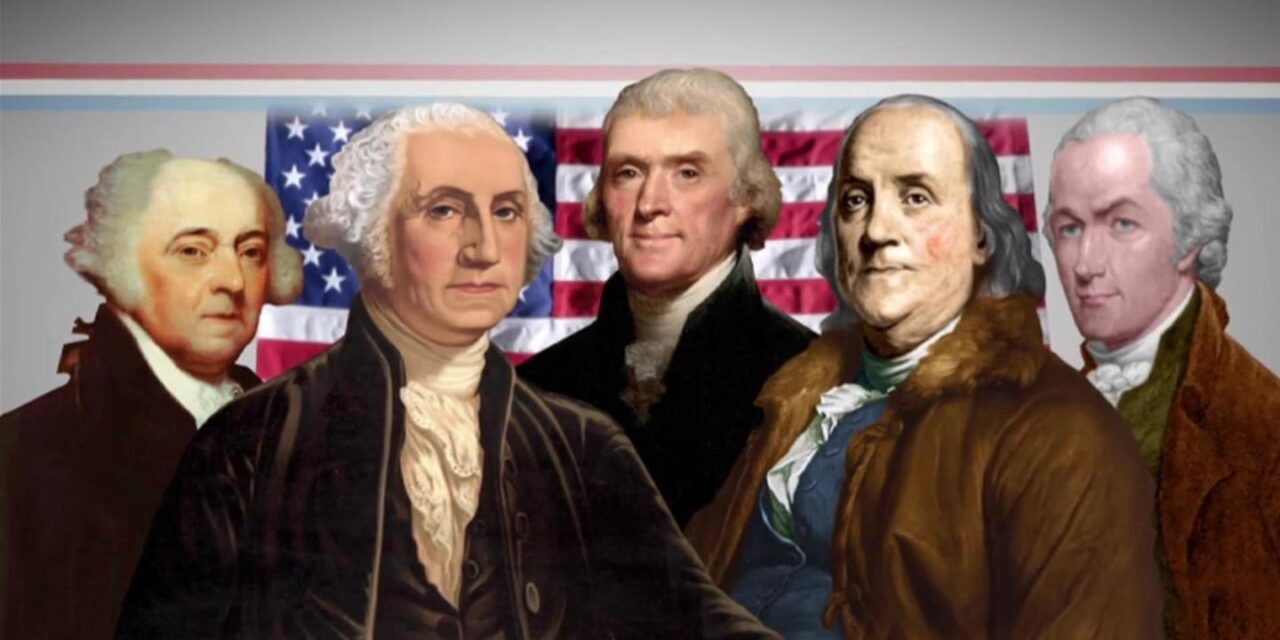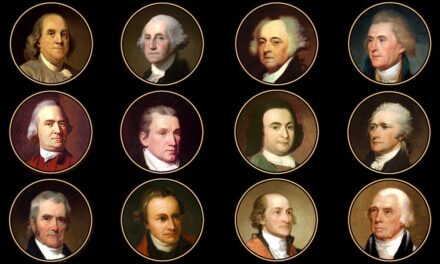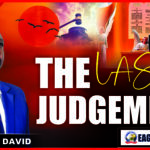The Importance of a Moral Society
| John Adams in a speech to the military in 1798 warned his fellow countrymen stating, “We have no government armed with power capable of contending with human passions unbridled by morality and religion . . . Our Constitution was made only for a moral and religious people. It is wholly inadequate to the government of any other.” John Adams is a signer of the Declaration of Independence, the Bill of Rights and our second President.Benjamin Rush, Signer of the Declaration of Independence said. “[T]he only foundation for a useful education in a republic is to be aid in religion. Without this there can be no virtue, and without virtue there can be no liberty, and liberty is the object and life of all republican governments. Without religion, I believe that learning does real mischief to the morals and principles of mankind.”Noah Webster, author of the first American Speller and the first Dictionary said “[T]he Christian religion, in its purity, is the basis, or rather the source of all genuine freedom in government. . . . and I am persuaded that no civil government of a republican form can exist and be durable in which the principles of that religion have not a controlling influence.”Gouverneur Morris, Penman and Signer of the Constitution.”[F]or avoiding the extremes of despotism or anarchy . . . the only ground of hope must be on the morals of the people. I believe that religion is the only solid base of morals and that morals are the only possible support of free governments. [T]herefore education should teach the precepts of religion and the duties of man towards God.”Fisher Ames author of the final wording for the First Amendment wrote, “[Why] should not the Bible regain the place it once held as a school book? Its morals are pure, its examples captivating and noble. The reverence for the Sacred Book that is thus early impressed lasts long; and probably if not impressed in infancy, never takes firm hold of the mind.”John Jay, Original Chief-Justice of the U. S. Supreme Court , “The Bible is the best of all books, for it is the word of God and teaches us the way to be happy in this world and in the next. Continue therefore to read it and to regulate your life by its precepts.”James Wilson, Signer of the Constitution; U. S. Supreme Court Justice, “Human law must rest its authority ultimately upon the authority of that law which is divine. . . . Far from being rivals or enemies, religion and law are twin sisters, friends, and mutual assistants. Indeed, these two sciences run into each other.”Noah Webster, author of the first American Speller and the first Dictionary stated, “The moral principles and precepts contained in the scriptures ought to form the basis of all our civil constitutions and laws. . . All the miseries and evils which men suffer from vice, crime, ambition, injustice, oppression, slavery, and war, proceed from their despising or neglecting the precepts contained in the Bible.”Robert Winthrop, Speaker of the U. S. House, “Men, in a word, must necessarily be controlled either by a power within them or by a power without them; either by the Word of God or by the strong arm of man; either by the Bible or by the bayonet.”George Washington, General of the Revolutionary Army, president of the Constitutional Convention, First President of the United States of America, Father of our nation, “Religion and morality are the essential pillars of civil society.”Benjamin Franklin, Signer of the Declaration of Independence “[O]nly a virtuous people are capable of freedom. As nations become corrupt and vicious, they have more need of masters.” “Whereas true religion and good morals are the only solid foundations of public liberty and happiness . . . it is hereby earnestly recommended to the several States to take the most effectual measures for the encouragement thereof.” Continental Congress, 1778Note that the above quotes are but a small sample of hundreds of quotes the Founding Fathers made in regards to the importance of a religious and moral people in a successful Republican Democracy. In our young nation, the Bible was used as a text book for the purpose of teaching children moral principles to live by. As time went on, the Bible was gradually replaced by other text books such as Noah Webster’s Primer. Webster’s Primer taught children to spell but was also filled with moral Bible verses. In the front of his Primer was his picture with the inscription, “Who taught millions to read but not one to sin.”This is the exact opposite of the school curriculum today. The courts in this country have revised the First Amendment, thus erecting a wall of atheism around every public school in America, where in God is not allowed to be mentioned. This is not the same wall that Thomas Jefferson envisioned.Has the School Prayer issue affected other Freedoms? |  John Adams: Second President of the United States, Signer of the Declaration of Independence and the Bill of Rights. |
* Quotes on this page are from David Bartons videos and books, which are on sale at www.wallbuilders.com.



